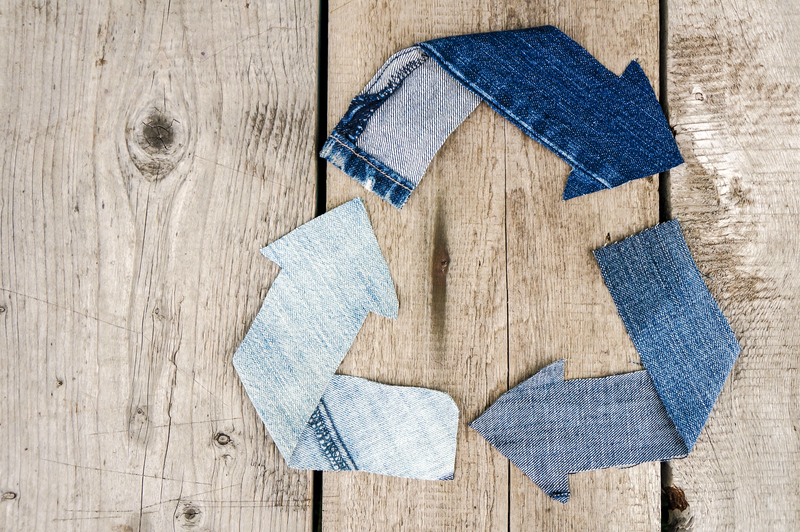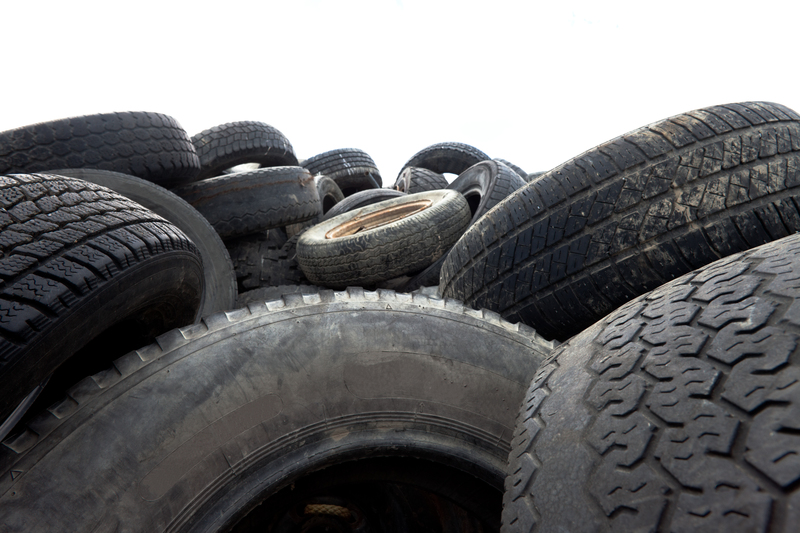Economical Ways to Handle Bulky Waste Removal at Home
Dealing with large and bulky waste items at home can be daunting, especially when looking for cost-effective disposal methods. Whether it's old furniture, broken appliances, beds, or garden debris, these large items pose unique challenges in terms of transport and disposal fees. However, you don't have to break the bank or violate local waste regulations to get rid of them. This article explores economical ways to handle bulky waste removal at home while being environmentally conscious and responsible.
Understanding Bulky Household Waste
Bulky waste refers to large items that are too heavy or big to fit into regular garbage bins. Typical examples include:
- Old sofas and armchairs
- Mattresses and bed frames
- Large cabinets or wardrobes
- White goods (like refrigerators and washing machines)
- Garden furniture
- Construction debris and old carpets
These items require special handling and careful planning to remove, especially if you want to manage the cost. Understanding your options is the first step toward affordable bulky waste disposal.

Why Seek Economical Bulky Waste Disposal Solutions?
Disposing of large household items through traditional waste collection may come with extra charges, strict guidelines, or even flat-out refusal. Additional fees for curbside pickup, landfill taxes, or hiring skip bins can add up. Besides, improper disposal may result in fines or environmental harm.
Luckily, there are several budget-friendly strategies you can apply for responsible and cost-efficient bulky waste removal.
Effective and Affordable Methods for Bulky Waste Removal
1. Utilize Local Council Bulk Waste Collection Services
Many municipalities and local councils offer periodic or on-demand bulky item collection services. Typically, these are far less expensive than private removal companies and often included in your regular council tax or utility fees.
- How to Use: Check your local council's website for bulky goods pick-up schedules and requirements.
- Benefits: Economical, reliable, and environmentally regulated.
- Tips: Book in advance, prepare items according to guidelines (like removing doors from appliances), and place items on the curbside as instructed.
2. Give Items a Second Life: Donate, Sell, or Gift
Often, what is waste to you might be valuable to others. By donating, selling, or giving away usable bulky items, you not only save on removal costs but also contribute to sustainability by reducing landfill waste.
- Donation: Contact local charities, shelters, schools, or community programs that accept furniture or appliances.
- Selling: Use online platforms like Gumtree, Facebook Marketplace, Craigslist, or neighborhood apps to sell or list items for free pickup.
- Freecycling: Join local freecycle groups where community members offer unwanted goods for free.
These options are completely free and sometimes can even make you money!
3. DIY Bulky Waste Removal: Rent a Vehicle
If your items are transportable, consider hiring a van or trailer for a few hours. Most recycling centers and household waste recycling facilities accept bulky items without charge.
- How to Save: Split rental costs with neighbors or friends who also have waste to dispose of.
- Facilities: Check acceptance criteria and opening hours first.
- Safety: Use proper lifting techniques and secure your load to avoid injury or fines.
DIY removal gives you full control over the process and can be the cheapest way to dispose of bulk items if you have access to a vehicle.
4. Upcycling and Repurposing Large Household Items
Before discarding, think creatively about reusing or repurposing bulky waste. Upcycling furniture or appliances into new items is not just cost-effective but also environmentally friendly.
- Turn old doors into tables or shelves
- Repurpose wooden bed frames as garden planters
- Convert unused cabinets into storage solutions
- Use broken bricks or tiles as landscaping material
There are countless DIY upcycling tutorials online to inspire your next project.
5. Share Collection Costs with Neighbors
Some private removal companies charge by the trip. If your neighbors also have large items to discard, you can organize a joint collection and split the fees, making removal much more affordable for everyone.
- Coordinate collection days in advance
- Negotiate group rates with service providers
6. Hire a Man-and-Van Service for Selective Loads
Hiring a man-and-van service is often cheaper than a full-scale waste removal company or skip hire. Book them for a single trip with carefully selected items to maximize value.
- Choose licensed, insured providers to ensure legal compliance
- Compare quotes for the best price
- Be precise about what needs removing to avoid extra charges
7. Use Skip Bags Instead of Skip Bins
Skip bags are flexible, foldable bags available at hardware stores. They're ideal for bulky but not excessively heavy waste (like mattresses, carpets, soft furnishings). Skip bags are cheaper to buy and collect than traditional metal skips, and you only pay when you require collection.
- Convenient for gradual clear-outs
- Easier to position on your property
8. Attend Municipal Large Item Drop-off Events
Some towns or cities host special Bulky Waste Drop-off Days, where residents can bring large items free of charge or for a minor fee. These are usually advertised well in advance, especially during spring cleaning or after the holidays.
- Look out for notices from your local sanitation department
- Prepare items according to guidelines (no hazardous waste unless specified)
9. Recycle Bulky Appliances Responsibly
Large appliances often contain materials that can be recycled, like metal, glass, and electronics. Many stores and councils offer take-back programs or can direct you to certified recycling centers.
- Some retailers offer free collection of old appliances when delivering new ones
- Certified electrical waste programs ensure safe handling of components like refrigerants or batteries
10. Seek Out Specialized Bulky Waste Removal Discounts
From time to time, local governments or waste management companies offer discounted bulky item removal promotions, especially after public holidays or during moving seasons. Stay informed via:
- Local council newsletters or social media pages
- Community bulletin boards
- Environmental groups
Legal and Environmental Considerations for Bulky Waste Disposal
What Happens if You Dump Bulky Waste Illegally?
Illegally dumping bulky items on the roadside, in nature, or outside bins is a finable offense that harms the environment and community. Proper large waste removal protects wildlife, preserves local resources, and avoids legal penalties.
How Do Economical Bulky Waste Solutions Help the Environment?
- Encourage reuse and recycling over landfill dumping
- Lower haulage and disposal costs by reducing waste volumes
- Support local circular economies through donations and resales
- Minimize your home's carbon footprint
Choosing the right disposal method is both a financial and ecological responsibility.
Steps to Choose the Best Cost-Effective Bulky Waste Removal Option
- Audit your bulky waste items: List and measure everything you want to dispose of.
- Check council and community resources: Research free or subsidized collection/dump events.
- Assess DIY removal: Consider your vehicle or shared options.
- Investigate resale/donation potential: Is your item reusable?
- Compare private quotes and negotiate group rates: If relevant, share costs with neighbors.
- Prioritize eco-friendly and legal routes for disposal or recycling.
Frequently Asked Questions About Affordable Bulky Waste Removal at Home
What items count as bulky waste?
Bulky waste items are those too large or heavy to fit in normal bins--like beds, white goods, carpeting, old bikes, or renovation debris (non-hazardous). Each council may define this differently.
How can I dispose of bulky waste for free?
Utilize council collection days, donate reusable items, list goods on freecycling platforms, or drop off at council-run household waste sites.
Are there any hidden costs to council bulky item pickups?
Sometimes, yes--such as charges for excessive loads, non-standard items, or failing to prepare items properly (e.g., not removing doors from fridges). Always check the rules beforehand.
Where do I find local discounted bulky waste offers?
Follow your council's website, neighborhood forums, or local environmental organizations. Some large retailers offer trade-in programs for old furniture or appliances.
What about hazardous bulky waste?
Items like asbestos, certain electronics, chemicals, or medical devices require specialist disposal. Contact your council or professional hazardous waste handlers for safe, legal removal.

Key Takeaways: Economical and Responsible Bulky Waste Disposal
- Always start with free, local options before pursuing paid services.
- Sell or donate--it's the lowest-cost and greenest option!
- Consider sharing costs with others for private services.
- Explore creative upcycling as both a hobby and a waste solution.
- Follow all council regulations to ensure compliance and avoid fines.
Conclusion
Economical ways to handle bulky waste removal at home are not just about saving money--they're about making thoughtful, sustainable choices that benefit your household, your community, and the planet. From utilizing public services to embracing upcycling or sharing resources, you have many affordable options available. Stay informed, plan ahead, and choose solutions that match your values as well as your budget.
By following these cost-effective bulky waste disposal strategies, you can declutter your home responsibly, reduce waste management costs, and help build a cleaner, greener future for everyone.
